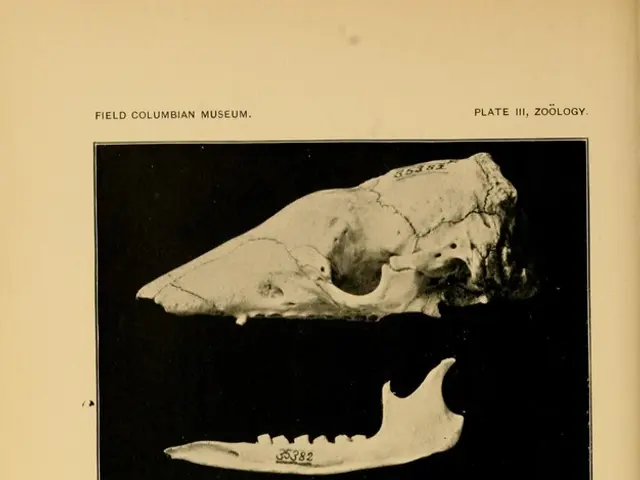A study suggests that adhering to an anti-inflammatory diet could potentially extend the lives of colon cancer patients.
Going the Anti-Inflammatory Route for Colon Cancer Survival
Kick cancer's butt with an anti-inflammatory diet! According to a recent study presented at the American Society of Clinical Oncology meeting in Chicago, adopting an anti-inflammatory diet could potentially extend the lives of patients with advanced colon cancer.
When you're saddled with colon cancer, the big question on your mind is often, "What can I do to increase my chances and live as long as possible?" That's a question Dr. Kimmie Ng, an author of the new study and associate chief of the division of gastrointestinal oncology at Dana-Farber Cancer Institute in Boston, hears regularly.
The study, yet to be published in a peer-reviewed journal, analyzed the diets of 1,625 adults with stage 3 colon cancer. Stage 3 means the cancer has spread to nearby lymph nodes but not yet to other parts of the body. With standard care, about three-quarters of patients with this diagnosis can expect to live at least five years after.
But the research suggests that our dietary choices may impact those odds. A less inflammatory diet—one that focuses on plants—could offer a potential boost.
"What's unique about colon cancer is that it's a cancer of the digestive tract," explained Dr. Sara Char, Ng's co-author and a clinical fellow in hematology and oncology at Dana-Farber Cancer Institute. "What we eat will inevitably go through the colon."
All the patients in the new analysis received the same treatment: surgery followed by three to six months of chemotherapy. They also completed dietary questionnaires during and after chemotherapy treatments. Researchers followed up on the participants for five years.
Patients who regularly consumed foods that promote inflammation—such as ultraprocessed foods, excessive amounts of sugar, and saturated fats—had up to an 87% higher risk of dying from their disease. In contrast, those who followed a less inflammatory diet (rich in plant-based foods like leafy greens, carrots, coffee, and tea) fared better.
Remember, cancer centers often have dietitians on staff to help patients maintain proper nutrition during treatment. And once treatment is done, patients may need additional help making dietary changes to improve long-term survival.
Real-world Examples
Cancer centers have dietitians who work with patients to ensure they're getting proper nutrition throughout their treatment. Chemotherapy, for example, can come with side effects like difficulty swallowing and poor appetite.
Once treatment is done, patients may need additional help making dietary changes to improve long-term survival.
Exercise Matters Too
Patients who followed an anti-inflammatory diet and engaged in higher levels of physical activity—the equivalent of taking a brisk walk for an hour at least three times a week—had a 63% lower risk of death from any cause during the five-year follow-up period.
A separate study presented at the cancer meeting found that regular exercise was linked to a 28% lower risk of the cancer recurring, a new cancer diagnosis, or death.
More than 150,000 people are diagnosed with colorectal cancer every year. So, embrace a healthier lifestyle—it's worth the fight!
Embrace the Anti-Inflammatory Lifestyle
While further research is needed, incorporating anti-inflammatory foods and regular exercise can potentially enhance survival rates for patients with stage III colon cancer. Consulting with healthcare providers is essential to tailor these recommendations to individual needs.
Now, let's delve a bit deeper into what an anti-inflammatory diet entails:
Key Components of an Anti-Inflammatory Diet
- Plant-focused foods: Include a variety of plant-based foods such as beans, broccoli, and cauliflower, which are rich in vitamins, minerals, and antioxidants.
- High-fiber foods: Foods high in fiber can help reduce inflammation and improve digestive health. Examples include whole grains, fruits, and vegetables.
- Omega-3 fatty acids: These are found in fatty fish like salmon and have potent anti-inflammatory effects. However, they should be consumed in moderation due to potential interactions with medications.
- Healthy fats: Include sources of healthy fats like olive oil, which are known for their anti-inflammatory properties.
- Avoid pro-inflammatory foods: Limit or avoid foods that can cause inflammation, such as processed meats, refined sugars, and high-sodium foods[1][2].
Lifestyle Recommendations
In addition to dietary changes, regular physical activity is highly recommended. Patients who followed an anti-inflammatory diet and engaged in higher levels of physical activity had significantly better survival outcomes compared to those with less active lifestyles[1][3].
An anti-inflammatory diet, focusing on plant-based foods, high-fiber foods, Omega-3 fatty acids, and healthy fats, might potentially extend the lives of patients with stage 3 colon cancer. Regular physical activity, equivalent to taking a brisk walk for an hour at least three times a week, could further decrease the risk of death from any cause. Incorporating nutrition advice from cancer center dietitians can help patients maintain proper nutrition during treatment and improve long-term survival.







